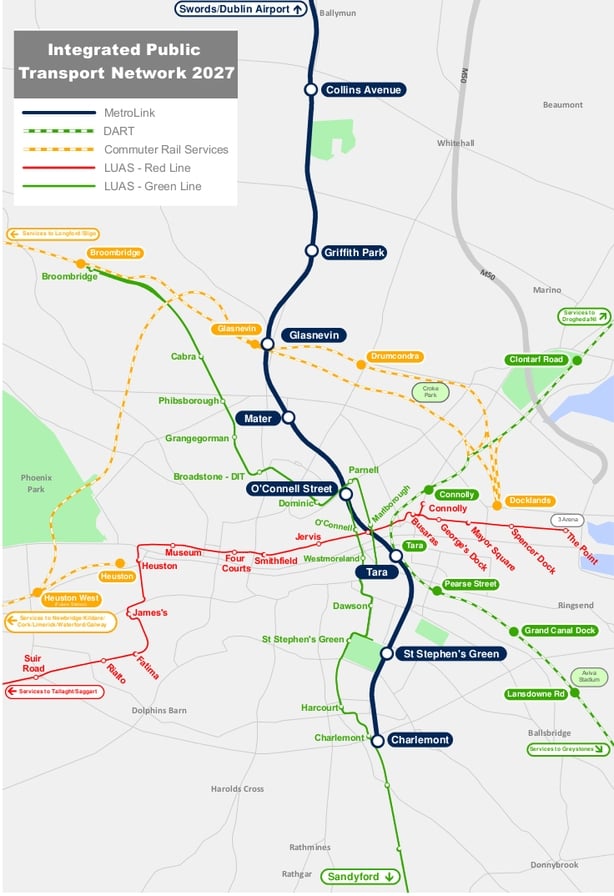One of Dublin's most iconic hotels has told An Bord Pleanála that it has serious concerns about the impact that MetroLink construction works will have on the business.
Wynn's Hotel, a protected structure, has been operating on Lower Abbey Street for 170 years.
Planning consultant for the hotel Blaine Creegan said that one of its main attractions is to provide guests with a "restful night's sleep" away from the hustle and bustle of city centre noise.
In a submission on the seventh day of oral hearings into the rail project, Wynn's said it is vital the "landmark" property remains "fully operational" during construction works.
It fears that noise and vibrations coming from a tunnel boring machine will seriously impact the normal functioning of the hotel.
The owners claimed that it will be impossible to complete future bookings when the tunnel boring machine is due to pass beneath the hotel during a two-week period.
Mr Creegan said Wynn's expects to suffer "significant financial impact" as a result of the works.
"Guests should expect to sleep peacefully at night," he said.
The hotel said that while the metro is beneficial to the capital, the impacts should not be minimised, adding that the noise and vibration from construction works ultimately "threatens the hotel's success and reputation".
Due to its location, just off O'Connell Street, the owners said the building is highly sensitive to noise.
Triple-glazed windows were installed when the Luas Red Line was opened to mitigate the noise of the trams passing by the hotel.
Wynn's argued that closure is the only way to fully protect the commercial activities of the business.
An Bord Pleanála was told the hotel could suffer "reputational damage" due to the works because guests may cancel bookings or ask for a refund if the noise exceeds the expected "slight to moderate" risk assessment by Transport Infrastructure Ireland (TII).
"TII has not fully acknowledged the effects on the hotel," Mr Creegan said.
Wynn's is asking for "recognition of operational impacts" by TII, especially during the period when the tunnel boring machine will be working beneath the hotel.
The oral hearings were told that the hotel generally takes bookings a year in advance and it requires the exact timings of when the machine will be used to allow the business to complete bookings.

TII noise and vibration consultant Rick Methold said the hotel's independent noise assessment is broadly similar to the findings of TII's own report.
TII experts said the progression of the tunnel boring machine is for a "very limited duration" and the two weeks referred to in its plan do not represent the total period of "significant effect" to the area.
"’It will reach peak level for two to three days," TII claimed.
Its Project Director Aidan Foley said the body recognises that there are complex issues to be addressed for the hotel, regarding the number of rooms and customers and visitors using the property.
Mr Foley said that because of these issues, further engagement with Wynn's is warranted in order to reach an agreement.
Earlier, the Rotunda Hospital and Millennium Theatre Company, which leases the Ambassador Theatre from the Rotunda, said that it had "satisfactorily resolved" issues relating to noise and vibration effects with TII.






